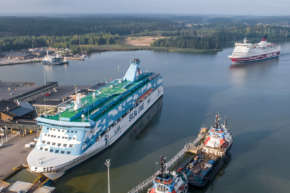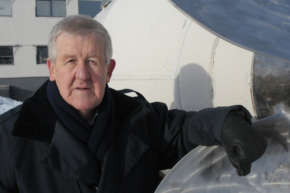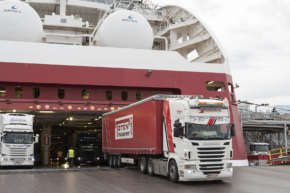Coronavirus turned the Swedish route temporarily into a cargo-only line
The shipping companies sailing between Turku and Sweden had to face the impacts of the coronavirus pandemic along with the rest of Finland. The coronavirus was declared a pandemic already in March, and the measures for preventing its spread halted in practice all passenger traffic between the countries. Cargo transports were allowed to continue, because maritime transports are in a key position in guaranteeing the security of supply in Finland.
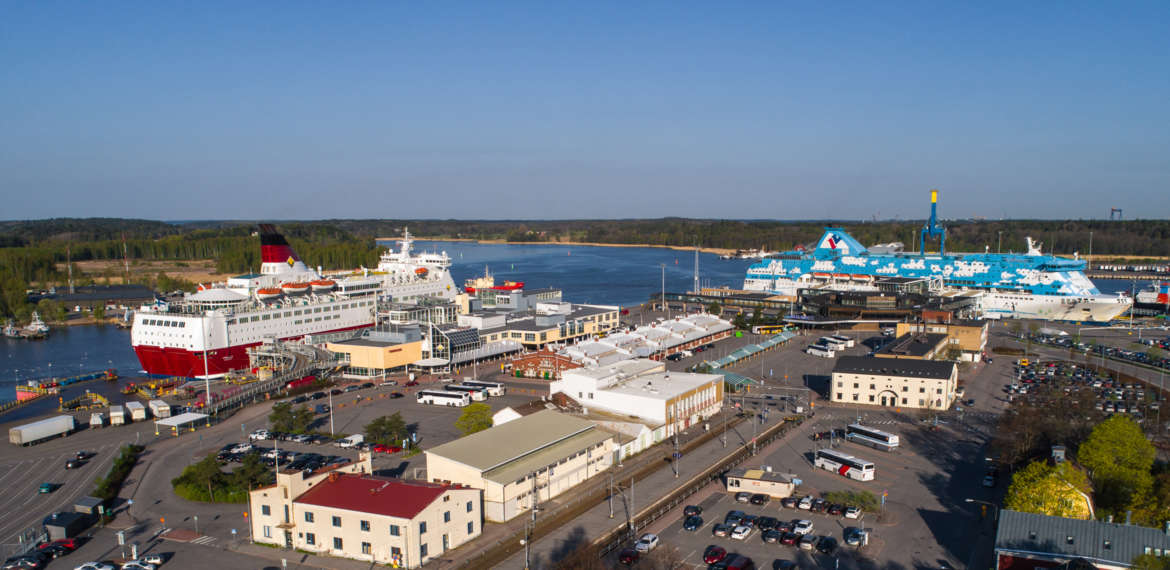
As carrying cargo alone does not cover the costs of operating the vessels, the Emergency Supply Centre of Finland decided on support measures to secure the continuing of cargo shipments. Thanks to that, the cargo transports of both Tallink Silja and Viking Line between Turku and Stockholm have been operated almost without changes through the spring.
High demand and cargo volumes
”As soon as the restrictions entered into force, we transferred our Swedish port of call to Kapellskär and switched to evening departures only. Very soon we found out, however, that the demand for cargo transports requires full capacity, and we returned to the standard route and two daily departures. Although the entire car decks of both of our vessels are at the disposal of cargo transports only, the ships are continuously almost fully booked. The demand has even exceeded our expectations”, says Marina Hasselblatt, Sales Manager at Tallink Silja.
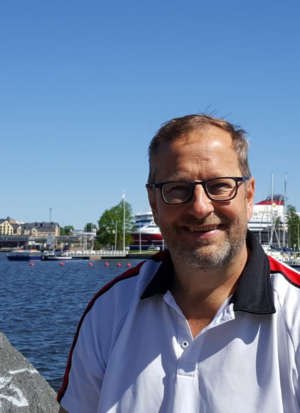
Viking Line has operated on the route all the time according to normal schedules with two vessels. The only change of route concerned Åland Islands, where the vessels called in Långnäs instead of Mariehamn. Ships returned to the familiar Mariehamn route from 28 May.
”The volume of cargo on our Turku route has developed positively during the coronavirus pandemic, too. The capacity of car decks is efficiently used, and in fact we could do with bigger car decks. We have nevertheless been able to serve our customers as per their expectations, focusing on long-term service. That is also indicated by the positive feedback on smooth customer service despite the exceptional times”, says Harri Tamminen, Freight Director at Viking Line.
Cargo types are the same as before coronavirus
The follow-up of the transported cargo has not presented any surprises. Goods flow steadily in both directions, and there have been no changes in product groups, either.
”The prioritisation of food and pharmaceutical shipments which the Emergency Supply Centre considers important has worked without problems, and there is space when it is needed. At first there were more such transports, as the customers were stocking up, but since then their share has stabilised. Consumer products and mail are the most common items, while industrial cargo volume is perhaps slightly lower than normally”, Marina Hasselblatt says about Tallink Silja.
Viking Line does not follow up the contents of cargo except for classified substances. That’s why Harri Tamminen also believes that the goods carried are mostly the same as before the coronavirus.
”You could estimate that transports of online trade have increased, because the central warehouses of many internationally significant products and suppliers are located in Scandinavia. The reliable and frequent connection on the route between Turku and Stockholm meets the transport needs of online shops superbly, which we of course saw already before the strong increase in online shopping sparked by the coronavirus”, Harri Tamminen reminds.
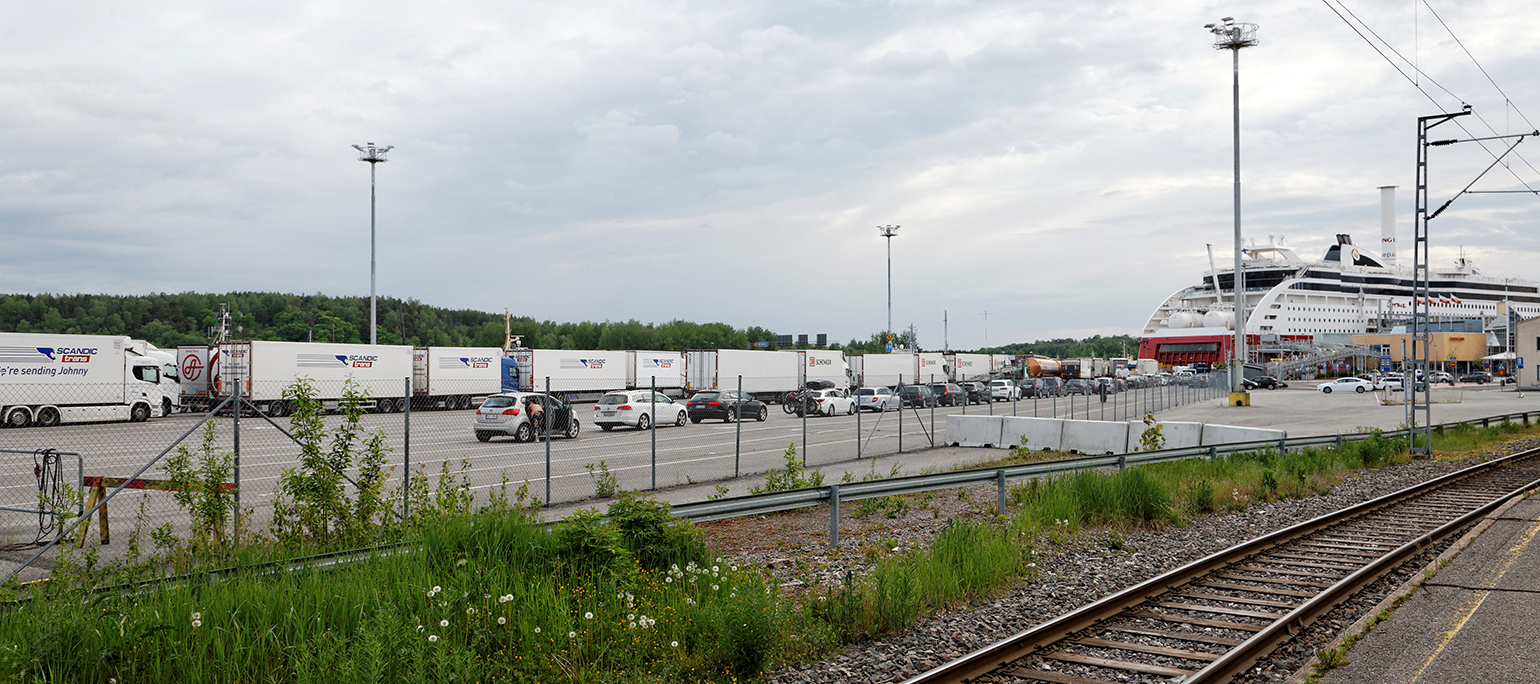
Changes in check-in and services on board
The end of passenger traffic also changed arrangements in the port. Tallink Silja’s passenger terminal was closed, and Viking Line operated with shorter opening hours for occasional passengers. The restrictions due to the coronavirus were taken into account in the check-in points for cargo transports with emphasis on safe distances and hygiene. Avoiding of physical contacts will reduce the risk of contagion and ensure the safety of both truck drivers and the personnel of the shipping companies.
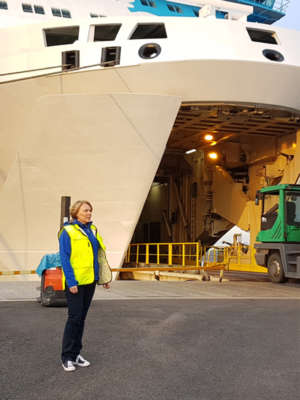
The changes resulting from the restrictions are also visible on board the vessels. The biggest changes have taken place in the restaurant services where buffet dining is not available at all. Tallink Silja has also introduced exceptional cabin arrangements.
”At present, there is just one restaurant available on both of our vessels. We serve appetizers as ready packed portions, and the main courses are served to the table. The customers cannot take anything by their own hands, and the hygiene is also improved by offering a chance to wash your hands before and after the meal. In addition, the drivers use different cabins from Turku to Stockholm and from Stockholm to Turku, which allows us more time for improved cleaning”, Marina Hasselblatt says.
The restaurant services on board Viking Line’s ships have adopted the same system as on land i.e. take-away dining. The cafeterias of the vessels serve tasty restaurant food as take-away portions which the customers can eat either in the cabins or at restaurant tables, taking safe distances into account. The system has turned out to work fine, and the drivers are also otherwise satisfied with the arrangements and services on board during the exceptional circumstances.
”According to the messages from the drivers, the rest period allowed by the ship voyage is now even more important than before the coronavirus epidemic. As resting places for heavy vehicles on land have been closed, the rest and chance for taking a shower in your own cabin are welcome after a drive. Enhanced cleaning is also facilitated on Viking Line’s ships by the use of different cabins depending on the direction”, Harri Tamminen says.
Cargo takes priority as restrictions continue
Both Marina Hasselblatt and Harri Tamminen say that the customers have taken the demands and restrictions dictated by the exceptional circumstances very well. Everyone is working in the spirit of “we’re all in this together” throughout the transport chain, from cargo customers to drivers. Although the gradual removal of the travel restrictions has already started, traffic continues on terms of cargo for the time being, both of them assure.
Text: Kari Ahonen
Photos: Jarmo Piironen and Markku Koivumäki

